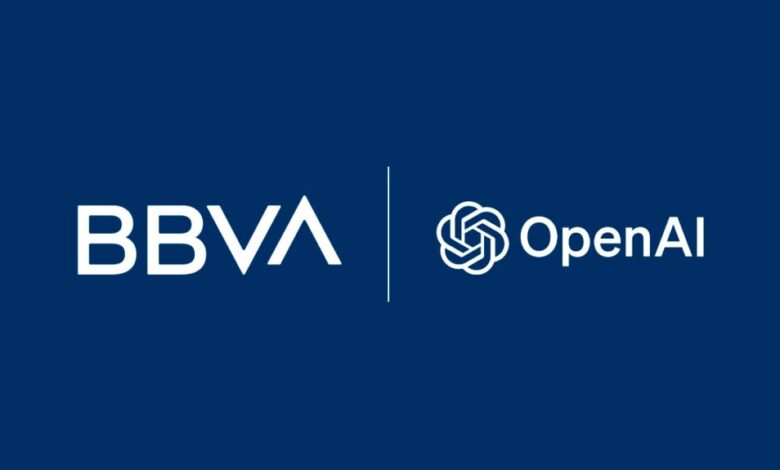BBVA steps up its plans in artificial intelligence by signing an agreement with OpenAI

With this latest agreement, BBVA is once again ahead of the curve when it comes to embracing disruptive technologies that will impact the financial industry. Notably, it is the first European bank to forge an alliance with OpenAI, which will share its knowledge and unlock the full potential of the new tool at the bank.
BBVA has already begun deploying 3,000 ChatGPT Enterprise licenses among Group employees in a bid to increase productivity and process efficiency, while stimulating innovation across the Group. The enterprise version of ChatGPT delivers the utmost security and privacy, combined with its unique ability to generate content or answer complex business questions, among numerous other features.
OpenAI has also agreed to deliver training and provide the latest updates for its large language models (LLMs), the technology on which ChatGPT is built. By working in close partnership with OpenAI, BBVA will drive forward the most successful use cases for the bank’s business and processes.
Data and technology are the key levers of transformation at BBVA, which for over a decade has been running specific development centers for advanced analytics and artificial intelligence, now known as AI Factories, in Spain, Mexico and Türkiye. In addition to these teams, there are also analysts and data specialists working across all the business areas, giving a total of more than 5,000 employees, of whom 1,000 or so are data scientists. The entire team works to unlock the value of data and AI with a view to improving business decision-making and helping create various kinds of products, such as solutions to improve the financial health of customers or aid them in their climate transition.
The recent agreement with OpenAI is a further example of BBVA’s ongoing commitment to generative AI as a key differentiating aspect in the value proposition it offers its customers. “New artificial intelligence tools are going to have a disruptive impact on society as a whole and on the financial industry in particular. At BBVA, we want to further promote our role as pioneers when it comes to innovating in financial services and we are therefore firmly committed to exploring the potential of this technology. We believe that generative AI, when used safely and responsibly, is a game-changer in how we support our customers in their decisions and offer personalized services. It also happens to stimulate creativity among our employees,” explains Ricardo Martín Manjón, Global Head of Data at BBVA.
OpenAI COO Brad Lightcap added: “We’re excited to partner with BBVA, one of Europe’s top banks, to deliver the capabilities of ChatGPT Enterprise at scale. AI streamlines mundane tasks, boosting creativity, efficiency, and productivity.”
The bank is already handing out licenses at its central services in Spain, and this process will continue in the Group’s other main countries. Compulsory training will be delivered for each account set up. The aim is for all areas and departments to have access to ChatGPT, so that licensed employees can collaborate with their colleagues in undertaking various projects. In tandem, BBVA will be collecting feedback and suggestions from these users through a multi-country community, with the aim of flagging the most outstanding use cases and sharing best practices.
“We see this first foray into the use of ChatGPT Enterprise as an opportunity to validate the extent to which these tools can genuinely boost our productivity, thus transforming the way we all work within the bank,” explains Elena Alfaro, the new Head of AI Adoption at BBVA, whose role is to mainstream this technology across the Group. “We are aiming to enhance the capabilities of our employees, not to replace them,” she says.
Alfaro also remarks that while ChatGPT Enterprise is certainly a major strategic commitment, it will not be the only solution to be used within the organization. BBVA is continuing to evaluate other tools that may prove viable for the more than 100 use cases to be rolled out over the course of 2024.



